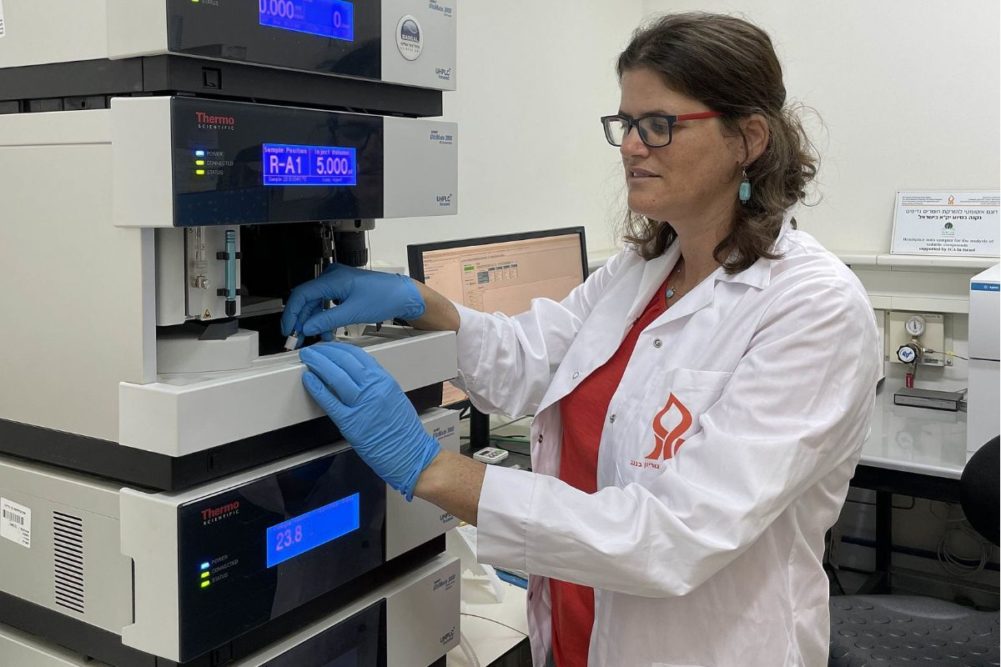BEER SHEVA, ISRAEL — Researchers at Ben-Gurion University (BGU) of the Negev are studying a variety of wild wheat for traits that could be bread into cultivated wheat to protect it from insects.
Emmer wheat, which has long been found in the Fertile Crescent, has at least two defense methods against insects, according to Vered Tzin of the French Associates Institutes for Agriculture and Biotechnology of Drylands, one of the Jacob Blaustein Institutes for Desert Research at BGU.
First, wild wheat has a coating of “hairs” that prevent insects from finding a place to burrow into the stalk. This could potentially be bred back into cultivated wheat to protect it.
Second, wheat produces a poison — a phytochemical called benzoxazinoid — that discourages bugs from eating the wheat.
“It is of the utmost importance to rigorously explore natural plant defense mechanisms and traits, which we could breed back into cultivated wheat to protect them against insects, instead of using harmful pesticides, which do not even work that well,” Tzin said.
Doctoral student Zhaniya Batyrshina is the first to have isolated the gene that controls the production of this poison.
“Now that we know which gene controls its production, we can generate improved cultivated wheat with the same self-defense capabilities,” Tzin said.
She and her colleagues’ findings were published recently in the peer-reviewed Journal of Experimental Botany and Frontiers in Plant Science.
“Wheat is an essential staple for so many and we must do all we can to safeguard this critical crop from loss by insects and disease,” Tzin said.
Additional researchers included her students, Reut Shavit, Anuradha Singh, and Beery Yaakov, as well as Samuel Bocobza of the Volcani Center, Hanan Sela from the University of Haifa, and Brian Dilkes from Purdue University.
This research is supported by the Israel Science Foundation (Grant. No. 329/20), and the Binational Agricultural Research and Development (BARD) Fund (IS-5092-18R). Reut Shavit was awarded a scholarship from the Israel Ministry of Science and Technology.






